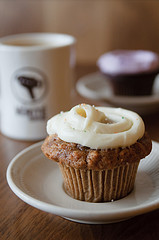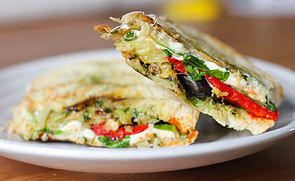 Running your own small business is tough at the best of times but trying to fathom what you can and cannot claim for your business costs and expenses can seem like an impossible task.
Running your own small business is tough at the best of times but trying to fathom what you can and cannot claim for your business costs and expenses can seem like an impossible task.
Food and drink costs are no exception and the rules around claiming these costs as a sole trader can seem complicated and are often confused with the rules for limited companies, which are different.
To help unravel some of the confusion I have put together this helpful guide for sole traders to define exactly when you can and cannot claim for your food and drink.
The General Rule
When running your business you will incur business costs and expenses but you will only be allowed to reduce your tax bill by some of these costs.
HMRC rules say that for expenditure to be ALLOWABLE it needs to be WHOLLY and EXCLUSIVELY for the purpose of your trade.
 Here’s an example: you purchase coffee and lunch at a local venue for a business meeting with a prospective supplier or client and spend the entire duration of the meal talking business. It would seem logical and reasonable to consider that the whole expense was “wholly and exclusively” incurred for the purpose of your business.
Here’s an example: you purchase coffee and lunch at a local venue for a business meeting with a prospective supplier or client and spend the entire duration of the meal talking business. It would seem logical and reasonable to consider that the whole expense was “wholly and exclusively” incurred for the purpose of your business.
Sadly HMRC don’t see it that way and unfortunately the cost of food and drink in this example wouldn’t be allowable as a tax deduction. Let’s look at why.
HMRC rules say “everyone must eat in order to live and such costs are normal costs of living incurred by all and not incurred for the purpose of trading”
What this means is that because you derive some personal benefit from eating (you eat to stay alive) and you’re not eating just to do your job, the cost of food and drink is not wholly and exclusively for the purpose of your business and can’t be included as an allowable business cost.
Let’s take a look at some more everyday examples to illustrate this rule:
- Instead of working at home you opt for a change of scenery and decide to spend the morning working out of your local coffee shop. You buy a few coffees and later, lunch. The cost of your food and drink is not tax allowable
- You spend the day co-working at a venue close to home but pop out to buy coffee and pastries. The cost is not allowable as a tax deduction
- You attend a local networking event and the entrance fee doesn’t include refreshments so when you get there you pay for your coffee. The networking fee is allowable but the cost of your drink NOT.
- You work from home and order in a pizza because you’re got a deadline to meet and no time to cook. The cost of pizza is not allowable.
- You’re a local fitness instructor and feel that you might be able to claim for an additional food cost for lunch as a result of the physical demands of your job. The cost is not allowable.
The rules seem tough but thankfully, there are 3 occasions where it’s acceptable to deduct “reasonable” food and drink expenses. The tax word for food and drink is “subsistence”.
Exceptions to the general rule
1 – If you are staying away from your usual base overnight on business
 For example: You live and work in and around Winchester but are required to travel to Birmingham for a 2 day conference. You would be allowed to claim “reasonable” costs for the evening meal and breakfast.
For example: You live and work in and around Winchester but are required to travel to Birmingham for a 2 day conference. You would be allowed to claim “reasonable” costs for the evening meal and breakfast.
It’s worth noting that alcohol is not subsistence unless it is purchased with a meal and even then it must be reasonable e.g. one drink or half a bottle of wine
Be warned about claiming subsistence for locations too close to your base of work as these may not be allowed.
2 – If you make a journey that is outside your normal pattern of business activity
For example: You run a coaching and mentoring business from your home in Winchester. If you had to embark on a 3 hour drive to attend a CPD course and stopped off at an M&S en-route to buy lunch – the cost of lunch would be an allowable deduction.
3 – If you are running a business that is by nature itinerant
 This would involve running a business where you did temporary work at a variety of locations without visiting the same client on a regular basis. Examples include: a party entertainer or a jobbing gardener.
This would involve running a business where you did temporary work at a variety of locations without visiting the same client on a regular basis. Examples include: a party entertainer or a jobbing gardener.
Unfortunately HMRC doesn’t give precise guidance as to what constitutes “itinerant” or “reasonable” when it comes to costs. If your circumstances aren’t straightforward have a chat to your accountant.
How shall I record food and drink in my accounts?
Your expenditure on food and drink might be classed as “business entertaining” ,“marketing” or “personal drawings”. If you’ve paid for it out of business funds, my recommendation is that you make a record of the expense in your accounts spread-sheet or software. It’s very common for small business owners to only include expenses that they believe are tax-deductible.
The costs are still business expenditure and if you’re keeping track of your income and expenses you will get a better steer on your performance if you include ALL your expenses.
When it comes to preparing your tax at the end of the year, you can decide or discuss with your accountant the nature of your expenditure to determine what should be allowable or disallowable for tax purposes.
And don’t forget to keep all your receipts.
Need further support with your small business tax and accounts?
Take a look at my tax packages or you can sign up for FREE helpful tips and inspiration
Over to you
Well done if you’ve made it this far in the blog. I hope you’ve found the post helpful and I’d be delighted if you felt able to share using the icons below. Do leave a comment and after that I think it’s time we all celebrated with a drink. Just a shame it won’t be tax allowable!
Photo credit: aftab. / Foter / CC BY-NC
Photo credit: poopoorama / Foter / CC BY-NC-ND
Photo credit: Dell’s Official Flickr Page / Foter / CC BY-NC-ND
Photo credit: mallydally / Foter / CC BY-ND

Very useful guide. Thanks!
That’s a pleasure Katharine. I’m glad the post was useful. Karen
Interesting. I go to coffee shops for business meetings as I work from home and don’t have the facility to have people to the house. I have to buy a drink otherwise I can’t use the coffee shop. This is a cheaper option than hiring a meeting room which would be a deducatable exprense. HMRC’s rules are not always the most logicigal! Thank you
Hi Anne, Thank you for dropping by. I agree, that there are many rules laid down by HMRC that do not appear logical (or fair). Generally speaking though, the rules for deducting expenses are a little more generous for sole traders than they are if you were a limited company director. Karen